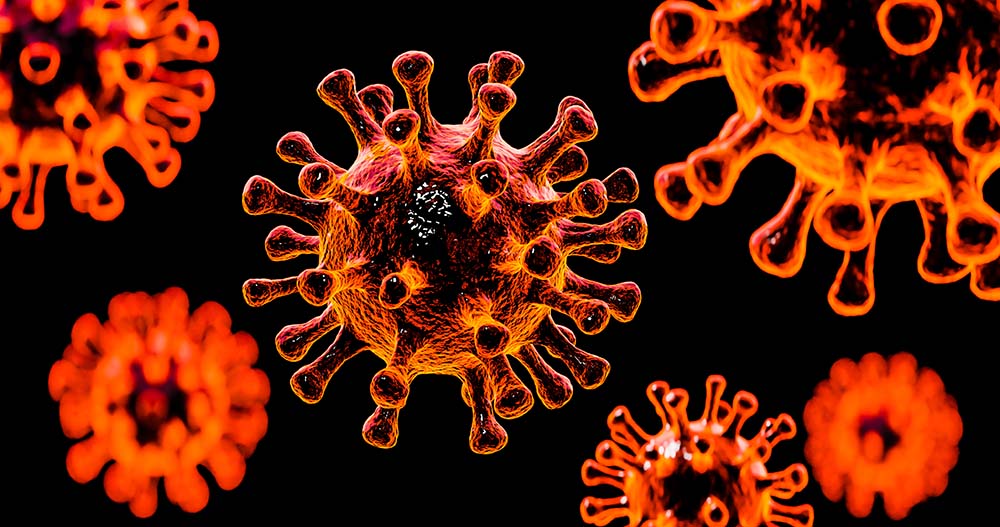The COVID-19 pandemic has brought on a worldwide health emergency and also impacted people’s mental well-being. The fear of infection and long-term isolation directly impacted mental health and challenged society. This article gives a brief overview of the impact of COVID-19 on our mental health, what coping strategies have proven effective, and how we can find stress relief in tough times like the pandemic.
The Mental Health Repercussions of the Pandemic
The pandemic has affected our routine lives very badly and affected everyone somehow. For many, it is the loss of loved ones; for some, it is about job insecurity or the strain of social isolation. All these things directly impacted the increased intensity of feelings of depression, anxiety feeling, and other mental illnesses.
Vulnerable Populations
Some groups of people have felt the very significant impact of the pandemic. Individuals with pre-existing mental health conditions, the elderly, young people, and frontline workers have explicitly been vulnerable to mental health problems during the pandemic. It affected their routine, fear of getting affected by the virus, and the emotions of treatment; all these are affecting them with mental health issues.
Coping Strategies for Mental Health During COVID-19
In a situation like this, coping strategies always become a vital part in navigating the mental health challenges, these strategies include some simple daily routines for seeking professional help.
Establishing a Routine
Setting up a good routine is one of the best ways to keep your head straight during the pandemic. It has normal sleep times, enough time to eat, and plans for work or school. These things help make life feel steady when everything else seems crazy. It give us a basic sense of routine which help us to keep things grounded when the world is spinning out of control.
Staying Connected
Staying connected with our loved ones, family, friends, and community has become essential, and technology has allowed us to stay connected as social distancing measures have kept us physically apart.
Seeking Professional Help
To cope with this situation of mental health, many people took professional help. Teletherapy services have seen a surge in demand as people are seeking support for the cause of feeling depressed, anxiety feeling, and other mental illness due to pandemic.
Stress Relief in the Time of COVID-19
Stress Management is critical to maintain mental health during these challenging times. Below are some strategies that have helped many people cope with the pandemic.
Physical Exercise
Doing physical activities has proven to be a stress reliever. Whether it is a home workout, a socially-distanced walk, a gym, or yoga, it releases endorphins that help in improving mood and lessens the feeling of anxiety.
Mindfulness and Relaxation Techniques
Doing Meditation, performing Deep Breathing, and Progressive Muscle relaxation become significant and widespread ways of managing stress during the pandemic. These techniques help calm the mind, reduce rumination, and promote emotional well-being.
Engaging in Hobbies
Taking time to engage in hobbies and do work or activities that you enjoy can be very useful for stress management. Reading, cooking, painting, or any other hobby provides a valuable distraction and a sense of accomplishment.
Long-term Implications on Mental Health
Along with the immediate effects of the pandemic on mental health, it’s essential also to consider the long-term implications. Mental health professionals warn that the trauma of COVID-19 could have long-lasting impacts on many lives, so we should also focus on long-term implications.
Preparing for Post-Pandemic Mental Health
After seeing its long-term implications, preparing for the mental health aftermath of the pandemic will be crucial. Expanding mental health services, awareness of mental health to the public, focusing on teletherapy to reduce physical interaction, and continuing to research the psychological impacts of COVID-19 becomes essential.
Building Resilience
Fostering a supportive community, promoting mental health education, and encouraging healthy coping mechanisms help in building individual and collective resilience and will be vital in recovering from the mental health impacts of the pandemic.
The COVID-19 pandemic tested our mental health strength and our collective efforts to fight the pandemic. It’s important to remember that seeking help, taking effective coping strategies, and finding stress relief are all signs of strength, not weakness.
Understanding the impact of the pandemic on our mental health and fighting these challenges is a significant takeaway from this pandemic.



Leave a Reply